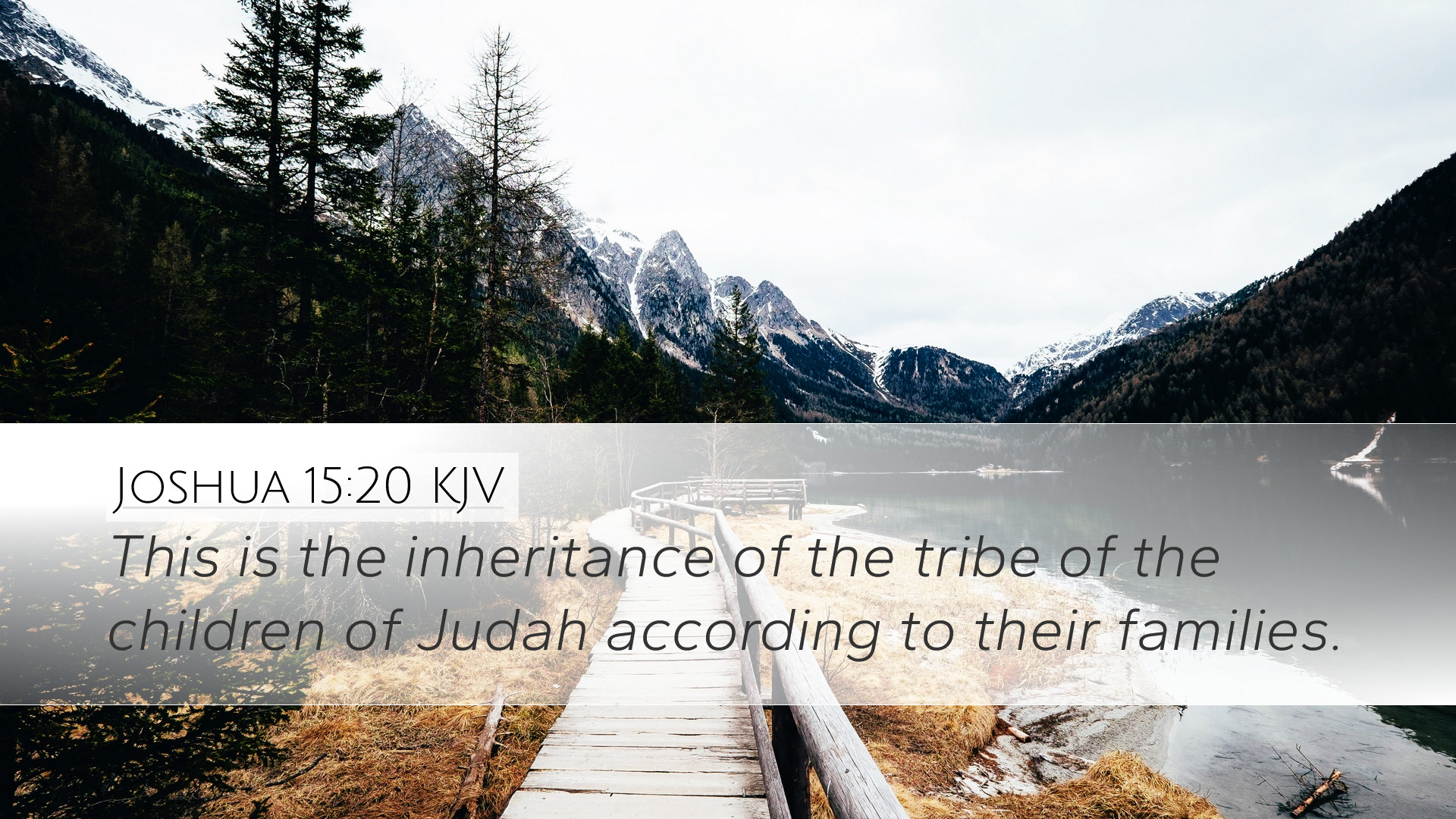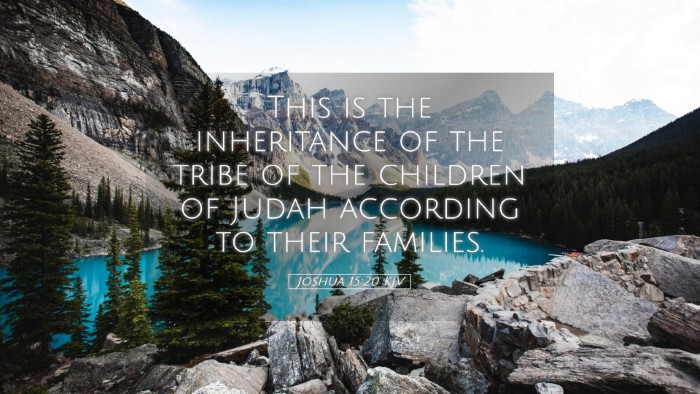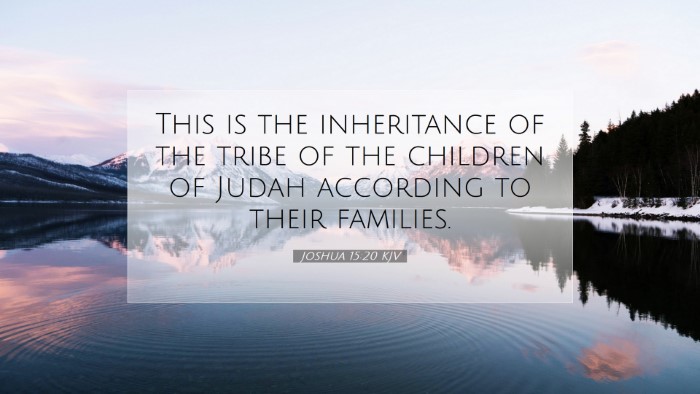Commentary on Joshua 15:20
This verse states: "This is the inheritance of the tribe of the children of Judah according to their families." It provides a significant pivot in the narrative of the allocation of land in the Old Testament, particularly focusing on the allotment given to the tribe of Judah.
Contextual Overview
In the Book of Joshua, after the conquest of Canaan, God instructs Joshua to divide the land among the tribes of Israel. The chapter outlines specifically the inheritance of the tribe of Judah, one of the largest and most influential tribes. This verse serves as a summary statement that encapsulates the details of Judah's territorial inheritance.
The Importance of Inheritance
Inheritance in the ancient Near Eastern context was a vital element representing identity, territorial rights, and God's promises. Understanding Judah's inheritance is crucial when considering the broader narrative of Israel's history.
Theological Implications
- Divine Promise: This inheritance signifies the fulfillment of God's promise to Abraham, Isaac, and Jacob regarding the land of Canaan.
- God's Faithfulness: The tribute to Judah shines a light on God's unwavering faithfulness. He promised the land to His people, and the allotment is a tangible manifestation of this promise.
- Judah's Significance: Judah became the royal tribe, being the lineage of David and ultimately, according to the New Testament genealogy, of Jesus Christ.
Commentary Insights
Matthew Henry
Matthew Henry emphasizes the significance of Judah’s inheritance regarding their past as an unfaithful tribe that was transformed through God’s providence. He notes the way God blesses those who remain steadfast in His plans. Henry also reflects on the geographical elements of the inheritance as a reminder of the physical and spiritual blessings that come from following God’s directives.
Albert Barnes
Albert Barnes expounds on the organizational structure presented in this verse, highlighting that the listing of families within Judah illustrates the diversity and unity of God’s people. He indicates that each family within Judah has a unique role in the larger narrative of God’s redemptive history. Furthermore, Barnes touches upon the lessons concerning stewardship of land and property that can be drawn from this inheritance, urging modern readers to recognize the sacredness of God-given resources.
Adam Clarke
Adam Clarke’s commentary dives into the historical context of Judah, pointing out the tribal significance and the subsequent influences on Israel’s kingship and governance. He examines how Judah’s inheritance laid the groundwork for the political and spiritual leadership that the tribe would provide. Clarke insists on seeing this inheritance through a prophetic lens, notably connecting it with the messianic promise found in Scripture.
Practical Applications
For pastors, students, and theologians, this verse provides several practical insights:
- The Importance of Heritage: Just as the tribe of Judah was reminded of their inheritance, believers today should reflect on their spiritual heritage through faith in Christ.
- Unity in Diversity: The passage exhibits that God’s family, though diverse, is united under His promises. This should encourage congregational unity amidst diversity.
- Continuing Faithfulness: The verse serves as an admonition to remain faithful to the calling and blessings received from God, not merely for individual gain, but for the glory of God and the welfare of the community.
Conclusion
Joshua 15:20 encapsulates a vital moment in biblical history—the allocation of land to the tribe of Judah, symbolizing God’s promise and faithfulness. As we unpack this verse through the classic commentaries by Matthew Henry, Albert Barnes, and Adam Clarke, we see its multi-faceted implications for theology, history, and practical Christian living. This verse challenges and inspires the faithful to understand their spiritual inheritance and to embrace their roles in God’s unfolding narrative of redemption.


